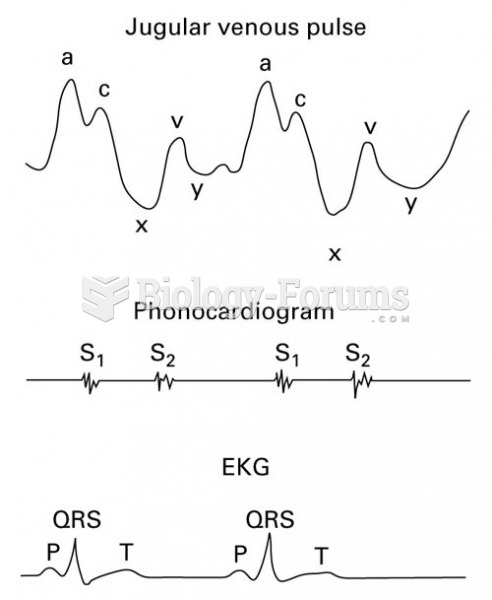|
|
|
Normal urine is sterile. It contains fluids, salts, and waste products. It is free of bacteria, viruses, and fungi.
Autoimmune diseases occur when the immune system destroys its own healthy tissues. When this occurs, white blood cells cannot distinguish between pathogens and normal cells.
Hyperthyroidism leads to an increased rate of metabolism and affects about 1% of women but only 0.1% of men. For most people, this increased metabolic rate causes the thyroid gland to become enlarged (known as a goiter).
Serum cholesterol testing in adults is recommended every 1 to 5 years. People with diabetes and a family history of high cholesterol should be tested even more frequently.
Approximately one in three babies in the United States is now delivered by cesarean section. The number of cesarean sections in the United States has risen 46% since 1996.
 Moderate to high physical activity in PE classes is one component of a successful prevention effort ...
Moderate to high physical activity in PE classes is one component of a successful prevention effort ...
 Correlations on tests for a number of cognitive abilities are higher for monozygotic twin pairs (who ...
Correlations on tests for a number of cognitive abilities are higher for monozygotic twin pairs (who ...
 Older people who exercise cognitive skills, like these chess players, retain those skills well into ...
Older people who exercise cognitive skills, like these chess players, retain those skills well into ...




